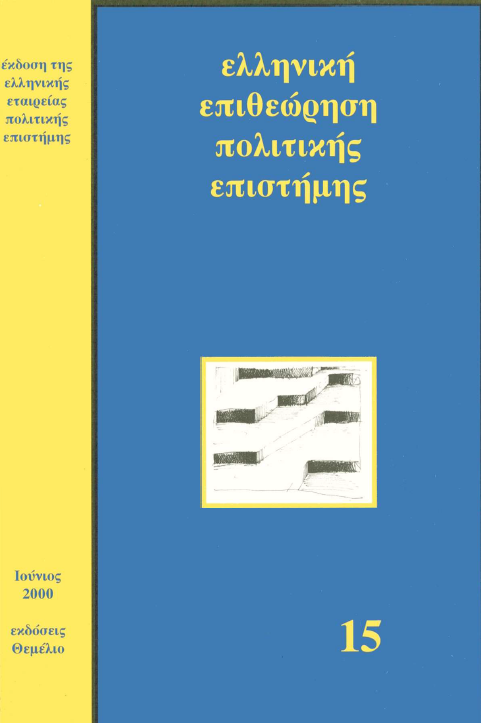Local government and field administration: restructuring an old rivalry?
Abstract
Limited functions, poor financial resources as well as a strong political influence have been characterizing Greek local government up to the 70’s. Many local affairs have been managed by the field administration of the central state, while the political parties have maintained highly centralized structures. Since 1980, several reforms have strengthened local government, by expanding municipal responsibilities, by establishing a second tier (1994) and, finally (1998), by restructuring the first tier through a rigorous reduction from 5.775 down to 1033 units. In the meantime, the central state has reorganized its field administration at the level of the regions. While there is still no clear picture of the «new» administration system, some relevant patterns can be located within the political system. For the time being, «emancipation» of local politics has led into a vicious circle of clientelism and corruption. However, the establishment of effective control-mechanisms in combination with the strengthening of local elected bodies could resolve these problems. Decentralization could, thus, strongly contribute to the renewal of the political system.
Article Details
- How to Cite
-
Χλέπας Ν. Κ. (2017). Local government and field administration: restructuring an old rivalry?. Greek Political Science Review, 15, 36–67. https://doi.org/10.12681/hpsa.15172
- Issue
- Vol. 15 (2000)
- Section
- Articles

This work is licensed under a Creative Commons Attribution-NonCommercial-ShareAlike 4.0 International License.
Authors who publish with this journal agree to the following terms:
Authors retain copyright and grant the journal right of first publication with the work simultaneously licensed under a Creative Commons Attribution licence that allows others to share the work with an acknowledgement of the work's authorship and initial publication in this journal.
Authors are able to enter into separate, additional contractual arrangements for the non-exclusive distribution of the journal's published version of the work (e.g. post it to an institutional repository or publish it in a book), with an acknowledgement of its initial publication in this journal.
Authors are permitted and encouraged to post their work online (preferably in institutional repositories or on their website) prior to and during the submission process, as it can lead to productive exchanges, as well as earlier and greater citation of published work (See The Effect of Open Access).



